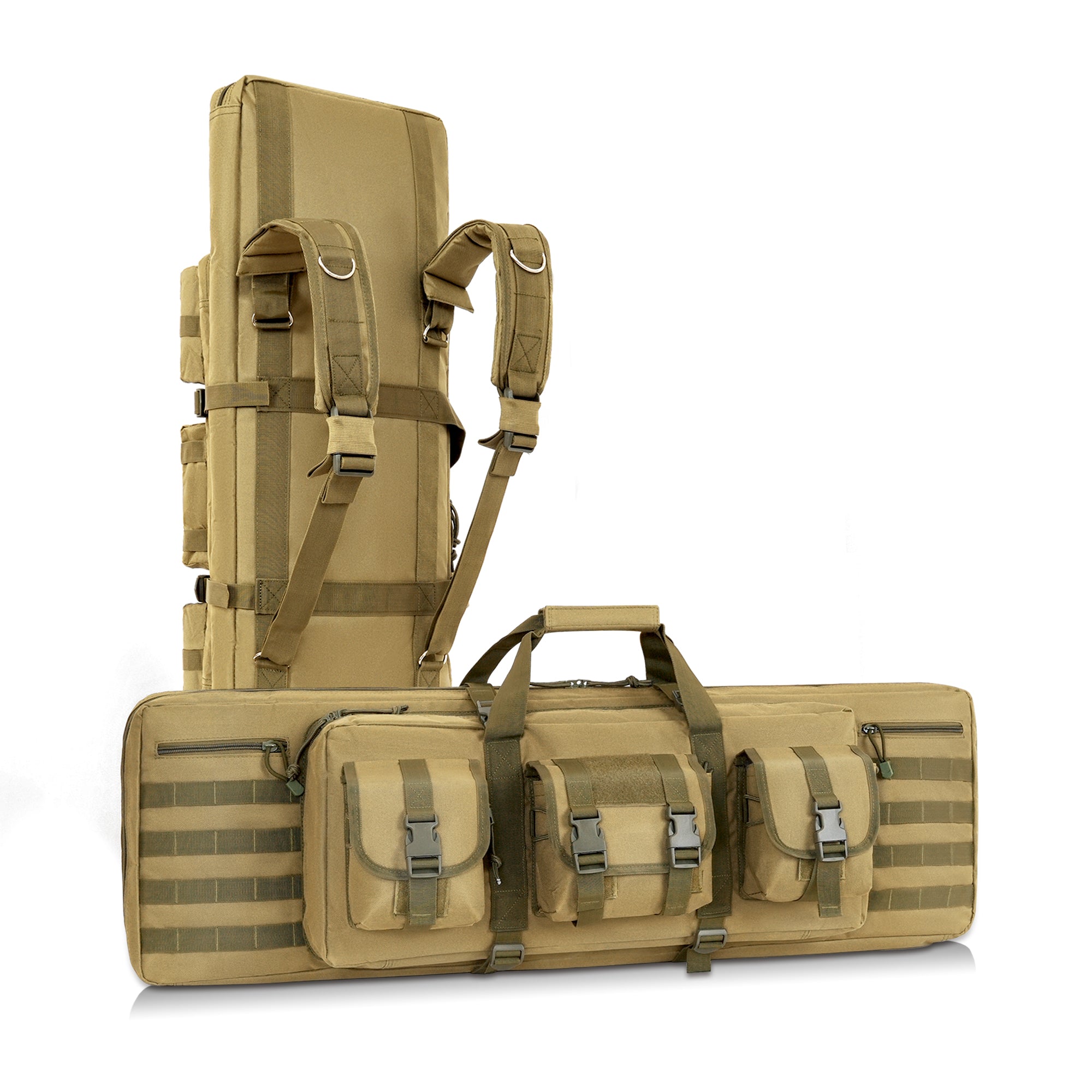Unlock the Secrets to Choosing the Perfect Rifle Case: Essential Features You Can't Ignore!
When it comes to safeguarding your precious rifles, having a reliable rifle case is not just a luxury—it's a necessity. Whether you're transporting your firearm to a shooting range, storing it at home, or simply organizing your collection, a high-quality rifle case serves multiple purposes. It provides the essential protection against impacts, moisture, and dust, ensuring that your rifle remains in pristine condition. In this article, we aim to equip you with the knowledge needed to understand the essential features of rifle cases and guide you in selecting the right one tailored to your specific needs.

Understanding the Different Types of Rifle Cases
Rifle cases come in various styles, each designed to cater to different needs and preferences. The most common types include soft cases, hard cases, and tactical cases. Soft cases are typically made from durable fabrics and provide moderate protection. They are lightweight and often come with extra pockets for storing accessories, making them ideal for casual transport. However, they may not offer the same level of protection against drops or harsh weather conditions as hard cases.
On the other hand, hard cases are constructed from robust materials like molded plastic or aluminum. These cases provide superior protection and are often waterproof and impact-resistant, making them suitable for long-term storage or travel. However, they can be bulky and heavier to carry. Tactical cases combine elements from both soft and hard cases, featuring additional compartments for gear and often incorporating hard-shell protection. They tend to be more versatile and suitable for those who require quick access to their firearm and accessories.
Ultimately, the type of rifle case you choose will depend on your specific needs, usage scenarios, and personal preferences. Understanding the pros and cons of each type can significantly influence your decision-making process.
Essential Features to Look for in a Rifle Case
When selecting a rifle case, several features are crucial to ensure that your firearm is properly protected and that the case meets your practical needs. One of the most important features is the material used. Cases made from high-quality nylon or heavy-duty polyester offer durability and resistance to wear and tear, while hard cases typically provide superior impact protection.
Size is another key factor; your case should fit your rifle snugly without being too tight. A well-fitted case prevents unnecessary movement during transport, minimizing the risk of damage. Padding is equally vital; look for cases with sufficient internal padding to absorb shocks. Some cases offer customizable foam inserts, allowing you to tailor the interior to your rifle's specifications.
Lockability is also an essential feature, especially for those who prioritize security. Cases that come with lockable zippers or built-in locks provide an added layer of protection against unauthorized access. Finally, consider additional features like waterproofing, exterior pockets for gear, and shoulder straps for easier carrying.
Factors to Consider Before Making a Purchase
Before purchasing a rifle case, it's essential to contemplate several factors that could influence your decision. First and foremost is the type of rifle you own. Different rifles come in various lengths and configurations, so it’s essential to choose a case that accommodates your specific firearm. Additionally, consider how frequently you'll be using the case; if you're a regular shooter, investing in a durable, high-quality case is worth it.
Transportation methods also play a significant role in your choice. If you plan to travel frequently, a hard case might offer the protection you need against potential impacts during transit. Conversely, if you're just heading to a local range, a lighter soft case may suffice. Lastly, your budget will naturally influence your decision. While it’s important to invest in a good-quality case, there are plenty of options available at various price points that can meet your needs without breaking the bank.
Tips for Maintaining Your Rifle Case
Caring for your rifle case is vital to ensure it remains in excellent condition and continues to protect your firearm effectively. Regular cleaning is essential; use a damp cloth to wipe down the exterior and interior, removing any dust or debris that may accumulate. For fabric cases, check the manufacturer's instructions for specific cleaning guidelines, as some may be machine washable.
When storing your rifle case, keep it in a cool, dry place away from direct sunlight to prevent material degradation. Regularly inspect your case for any signs of wear and tear, such as frayed straps or damaged zippers. Addressing these issues promptly can prolong the life of your case and ensure that it continues to serve its purpose effectively.
Choosing the Right Rifle Case: Key Takeaways
Choosing the right rifle case is a critical decision that can significantly enhance the protection and usability of your firearm. By understanding the various types of cases available, the essential features to look for, and the factors that influence your choice, you can confidently select a case that meets your specific needs. Take your time when making this decision—after all, a well-chosen rifle case is an investment in the safety and longevity of your valuable firearms.








